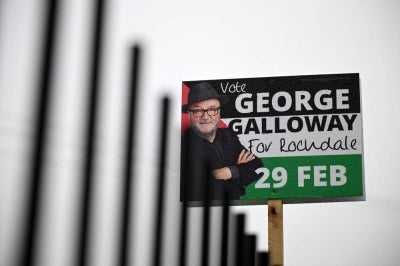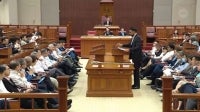A win for the working-class? Anwar's non-populist Budget is pushing for it
CHECKERED REALITY
SYAZA SHUKRI
In a recent interview I was asked if I think Anwar Ibrahim is a populist leader.
Based on my understanding of populism, he did have populist tendencies, especially when he was the opposition leader and agreed to further EPF withdrawals in March 2022. However, this is somewhat expected because when you are in the opposition, you are more likely to be critical of the government, and sometimes play with people’s sentiment with little to no repercussions.
Now that Anwar is Malaysia’s tenth prime minister, it is clear that he has the ability to feel the people’s heartbeat without resorting to populist tactics. We can easily see from the recently re-tabled Budget 2023 in which the budget is seen to be for the people, specifically the working-class, without it actually being a populist budget.
Populism is the idea that elites are out of touch with the common people and this requires correction by the masses, or specifically, a leader with popular support who claims to be fighting “the institution”.
A populist leader is someone that would push through policies that people want without seriously taking into account its negative consequences. Although in a democracy the voices of the people should reign supreme, leaders should consider the pros and cons of a policy based on information available to them that the people may not be aware of.
In Budget 2023 Anwar shows that he understands the difficulties facing the people today, especially relating to cost of living matters. Because of that, the government introduced multiple initiatives that are meant to lessen the burden of the working-class.
To name just a few: Jualan Rahmah, e-wallet credit for the youth, cash assistance to farmers, bankruptcy relief, ASB additional dividends and maintaining electricity tariff for domestic usage.
So, if the budget panders to the working-class, it should be considered populist, no?
I would argue that it is not populist because Anwar refrains from introducing policies that might be popular but would affect the country’s fiscal position in a longer period. A populist leader seldom cares about the overtime repercussions because his interest lies in getting immediate support.
If Anwar is that kind of populist leader, he would have given in and agreed to the withdrawal of the EPF which could easily give additional brownie points with supporters of the opposition. Nevertheless, as argued by many economists, it is not a wise decision to do so, and Anwar agrees.
Another example of this budget not being populist is the prime minister’s refusal to increase the salary of civil servants. Doing so would increase his popularity and he desperately needs the support of the civil servants given that his coalition lost in Putrajaya.
However, since Anwar is not a populist leader, he prioritises the poor. In a show of empathy, he said that although life may be difficult for civil servants, it is difficult just to live for the poor.
This budget doesn’t have the typical goodies that people have come to expect so again it underlines the fact that this budget is for the people without being populist.
Does this mean that Budget 2023 is good just because it is not populist? Obviously the answer is no.
Since the budget’s main thrust is helping the poor, it lacks structural reforms to combat corruption as promised during the campaign trail. There are efforts such as the streamlining of agencies and amendments to the Whistleblower Protection Act, but nothing beyond that to create a more comprehensive framework.
How will this strategy pan out for the unity government is hard to say. Malaysia is currently at a political crossroads where the best efforts of the government may be buried underneath racial and religious sentiment that is common for the populist.
Instead of the initiatives proposed by the government, the play on racial issues such as the frequency of the word ‘Bumiputera’ in Budget 2023 may matter more when state elections come after June.
Hopefully, the Unity Government will not succumb to the pressure and stay the course of helping the people based on facts, figures and data.
Syaza Shukri, PhD is an assistant professor of political science at International Islamic University Malaysia.
The views expressed in this article are the author's own and do not necessarily reflect those of Sinar Daily.
Download Sinar Daily application.Click Here!














